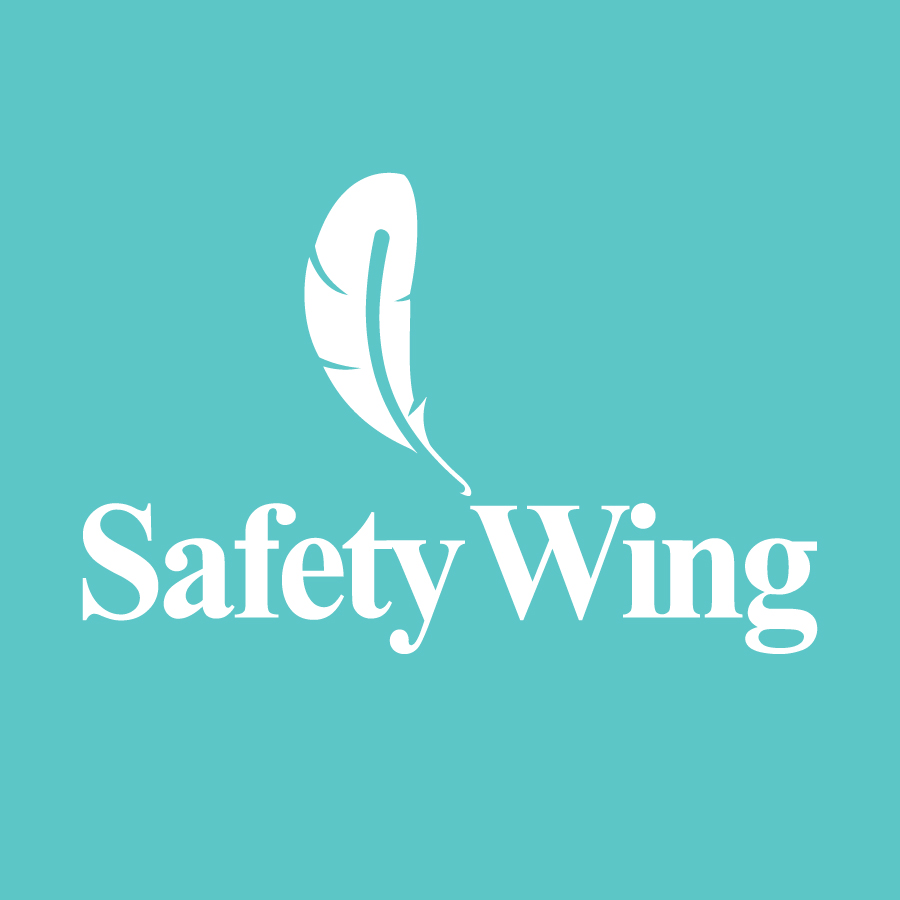
Safe to Travel – Canada
Is Canada Safe to Travel to in 2026
When it comes to Canada safety, this vast country has always been a beacon for traveller seeking both adventure and tranquillity. With its sprawling landscapes, Canada offers an unparalleled travel experience. Yet, you may be asking the question “Is Canada Safe to Travel to in 2026?” Here is our comprehensive guide to answer that question.
Canada’s reputation for welcoming tourists with open arms is well-documented, but it’s the specifics – from the Canada crime rate to solo travel in Canada – that paint a fuller picture. This article aims to provide a clear, concise overview of what to expect, ensuring your journey is as smooth and enjoyable as possible.
My name is Shannon 🙂
I have been travelling full time for the last decade. I have seen and experienced the most wonderful and mysterious things and incredibly excited to share these adventures with you. I thank my lucky stars that i have found myself in a position that I can give you all the tips and tricks needed for a seamless trip. So pack your bags and lets go!
Affiliate Disclosure: Some of the links on our site are affiliate links, meaning, at no additional cost to you, we may earn a commission if you click through and make a purchase. This helps us to continue providing valuable content and supports our efforts in bringing the travel community together. We only recommend products and services we believe in and think you’ll find useful. Complete details are included in our affiliate disclaimer. Thank you for your support!
In a Hurry? Here's our Key Info for This Article
- Canada ranks high on safety for travelers
- Crime rates are low, but petty theft can occur in tourist areas
- Emergency services are reliable and readily available
- It's important to follow local laws and customs for a smooth visit
- Weather conditions can vary greatly, so prepare accordingly
- Always have travel insurance for unexpected situations
Stay Connected
Things to Do
Essential Apps
Surfshark VPN
Stay safe online and continue accessing all your services just like back home.
Budget Tips
Understanding Canada’s Political Environment and Travel Guidelines
When you’re planning a trip to Canada, it’s wise to stay informed about the country’s political climate and any travel advisories that might affect your journey. Generally, Canada is known for its stability and welcoming attitude towards tourists. However, like any country, it has its own set of laws and cultural norms that you should be aware of to ensure your visit is both enjoyable and safe.
Canada’s political scene is characterised by its commitment to democracy and human rights, contributing to its low crime rate and making it a safe destination for tourists, including those travelling solo. However, it’s always prudent to check the latest Canada travel advisory updates for any region-specific warnings or emergency numbers in Canada that might come in handy.
Regarding health and safety in Canada, the country offers excellent healthcare facilities, but don’t forget to secure travel insurance for Canada to cover any unexpected medical expenses. Understanding and respecting Canada’s cultural norms can also enhance your travel experience and help you connect more deeply with local communities. Remember, a little preparation goes a long way in ensuring your trip is not just safe but also enriching.
Canada’s Reputation: Fact vs Fiction
| ✅ Fact | ❌ Fiction |
|---|---|
| Canada ranks high for safety, making it a great destination for solo travel in Canada. | Canada is too cold to enjoy any outdoor activities. |
| Emergency numbers in Canada are easily accessible, enhancing Canada tourist safety. | Wildlife encounters are a daily danger for tourists. |
| Travel insurance for Canada is recommended to cover unexpected health and safety issues. | Canada’s cities are overrun with crime, affecting the Canada crime rate negatively. |
| Understanding cultural norms in Canada can greatly enhance your visit. | English and French are so prevalent that you can’t get by with just one language. |


Emergency Contacts: Numbers and Addresses
When you’re roaming through Canada, knowing about Canada safety is crucial, especially if you’re on a solo travel in Canada adventure. It’s not just about enjoying the scenic beauty or indulging in the local culture; it’s also about being prepared for any unexpected situations. Canada’s crime rate is relatively low, making it a safe destination for tourists. However, emergencies don’t knock on the door before arriving. Whether it’s a health scare, a lost passport, or needing immediate assistance, having a list of emergency numbers and addresses can be a lifesaver. Here’s a quick guide to keep you covered:
- Emergency Services (Police, Fire, Ambulance): Dial 911 for any emergency situation that requires immediate action.
- Non-Emergency Police Number: Find the local number for non-urgent situations where you still require police assistance.
- Nearest Embassy or Consulate: Always know the address and contact number of your country’s embassy or consulate.
- Travel Insurance Provider: Keep the contact details of your travel insurance for Canada handy, in case you need to make a claim or seek advice.
Remember, the political climate in Canada is stable, but staying informed about the Canada travel advisory and health and safety in Canada can enhance your travel experience. For insights on traveling to another destination, consider checking out this Brazil safety overview for preparedness and a good comparison.
Addressing Safety Queries for Canada
When you’re mulling over a trip to Canada, safety questions might pop up in your thoughts. Let’s cut to the chase: Canada is one of the safer countries you could choose to visit. However, like anywhere else, it has its share of safety concerns that you should be aware of. For starters, weather conditions can be extreme, especially during winter. If you’re not used to icy roads and sidewalks, you might find yourself in a slippery situation. Always check the local weather forecasts and dress appropriately.
In big cities like Toronto or Vancouver, keep an eye on your belongings. Petty theft can happen, particularly in crowded places. It’s not rampant, but staying vigilant never hurts. Also, if you’re venturing into Canada’s vast wilderness, be prepared. Wild animals, including bears and moose, aren’t just in storybooks. Knowing how to store food properly and what to do if you encounter wildlife is crucial.
For those of you comparing safety across destinations, Cabo Verde safety might offer some perspective on urban safety standards.
Lastly, Canadians are known for their friendliness, but it’s always wise to have local emergency numbers saved in your phone, just in case. Enjoy Canada’s stunning landscapes and welcoming cities, but remember, a bit of caution goes a long way. While on any travel anywhere, having insurance is really important. Companies like Safetywing have great coverage for low premiums.
Crime Rates
While planning your Canadian adventure, it’s smart to get a grip on the crime rates. Canada is known for its safety, but like any place, it has its share of petty theft, especially in tourist hotspots. Keeping your valuables secure and staying aware of your surroundings can go a long way.
| Crime Type | Rate in Canada | Precautionary Measures |
|---|---|---|
| Petty Theft | Low | Stay vigilant in crowded places |
| Burglary | Very Low | Secure accommodations |
| Violent Crime | Rare | Avoid walking alone at night in less populated areas |
| Scams | Occasional | Be cautious of too-good-to-be-true deals |
Cultural Norms
When you’re planning your trip to Canada, understanding the cultural norms can significantly enhance your experience, especially in terms of Canada safety. Canadians are known for their politeness and inclusivity, but there are a few cultural nuances you should be aware of to navigate your visit smoothly and respectfully.
First off, personal space is highly valued in Canada. In public spaces, it’s common courtesy to maintain a respectful distance from others. This isn’t just about comfort; it’s also a matter of safety. Keeping space allows everyone to feel secure, reducing the chances of misunderstandings that could lead to conflicts. Other countries have many cultural and societal norms that need to be followed for a smooth trip, for example Cambodia’s safety regulations are heavily influenced by societal norms.
Tipping is another cultural norm that might differ from what you’re used to. In Canada, it’s customary to tip service workers such as waiters, taxi drivers, and hairdressers around 15-20% of the total bill. This practice is not just a sign of appreciation for good service but also a crucial part of their income, as many service workers rely on tips to supplement their wages.
When exploring Canada, being aware of the Canada travel advisory and the Canada crime rate is crucial. While Canada is generally a safe country for tourists, like anywhere else, it has areas that are best avoided, especially at night. Always consult the latest travel advisories and talk to locals about places to steer clear of.
For solo travelers, Canada offers a welcoming and safe environment. Solo travel in Canada allows for personal growth and a unique exploration experience. However, always let someone know your plans, especially if you’re venturing into remote areas.
In case of an emergency, knowing the emergency numbers in Canada is vital. The general emergency number is 911, and it covers police, fire, and medical emergencies. Having travel insurance for Canada is also advisable to cover any unexpected medical expenses or trip cancellations.


Health and Safety in Canada
Regarding health and safety in Canada, the country boasts high standards of hygiene and medical care. Tap water is safe to drink, and public facilities are generally clean and well-maintained. However, if you’re planning outdoor adventures, be prepared for the weather. Canada’s climate can vary dramatically, and proper attire is essential to avoid hypothermia in winter or heatstroke in summer. Always carry a basic first-aid kit and be aware of any personal allergies or medical conditions. Remember, your safety and health should always come first during your travels.
Is Canada Safe for Female Travelers
Understanding Canada’s Safety Landscape
When it comes to Canada safety, the country is known for its welcoming atmosphere and low crime rate, making it a favorable destination for solo travel in Canada, including female travelers. However, like any destination, it’s wise to stay informed about the Canada travel advisory updates and familiarize yourself with emergency numbers in Canada. Awareness and preparedness are key to enjoying what this vast country has to offer, from its serene landscapes to its bustling cities.
Health and Safety in Canada
Travel insurance for Canada is a must-have for any traveler. It covers unexpected medical expenses, ensuring a safety net is in place. Canada’s healthcare system is excellent, but it can be costly for tourists without insurance. Also, understanding health and safety in Canada involves recognizing the country’s efforts to maintain a clean and safe environment for both its residents and visitors. Tap water is safe to drink, and public spaces are well-maintained, reflecting the country’s commitment to health standards.
Cultural Norms and the Political Climate
Canada’s cultural norms are diverse and inclusive, making it a comfortable place for travelers from all walks of life. The political climate in Canada is stable, contributing to the overall safety of the country. However, it’s beneficial to have a basic understanding of these cultural norms and the political landscape to navigate social interactions smoothly. Respectful curiosity about Canada’s multicultural fabric will enhance your travel experience significantly.
For those considering travel to other destinations, it’s helpful to compare safety standards. For instance, you might find the safety in Australia an interesting read to understand different safety contexts.
Concluding Thoughts
When it comes to Canada safety, travelers can breathe a little easier knowing that this country maintains a reputation for being welcoming and secure. However, like any travel destination, it’s wise to stay informed about the Canada travel advisory updates and familiarize oneself with the emergency numbers in Canada. Solo travel in Canada is remarkably popular, thanks to the nation’s robust efforts in ensuring safety and providing clear guidelines on health and safety in Canada.
Understanding the cultural norms in Canada, along with the political climate, is crucial for any visitor aiming for a smooth experience. The Canada crime rate is relatively low compared to global standards, but visitors should still practice common sense and secure travel insurance for Canada to cover any unexpected incidents. Remember, your safety also hinges on how well you prepare and adapt to the local environment. With the right precautions, your Canadian adventure promises to be as safe as it is exhilarating.
Is Canada Safe to Travel to in 2026 FAQ
Keep your belongings close, especially in crowded areas. Be aware of the weather conditions, as they can change quickly. Countries like Ireland also have volatile weather which also an impact your safety on your trip.
Canada is generally safe, but like anywhere, some neighborhoods in larger cities may have higher crime rates. It’s wise to research and ask locals for advice on places to avoid, particularly after dark.













